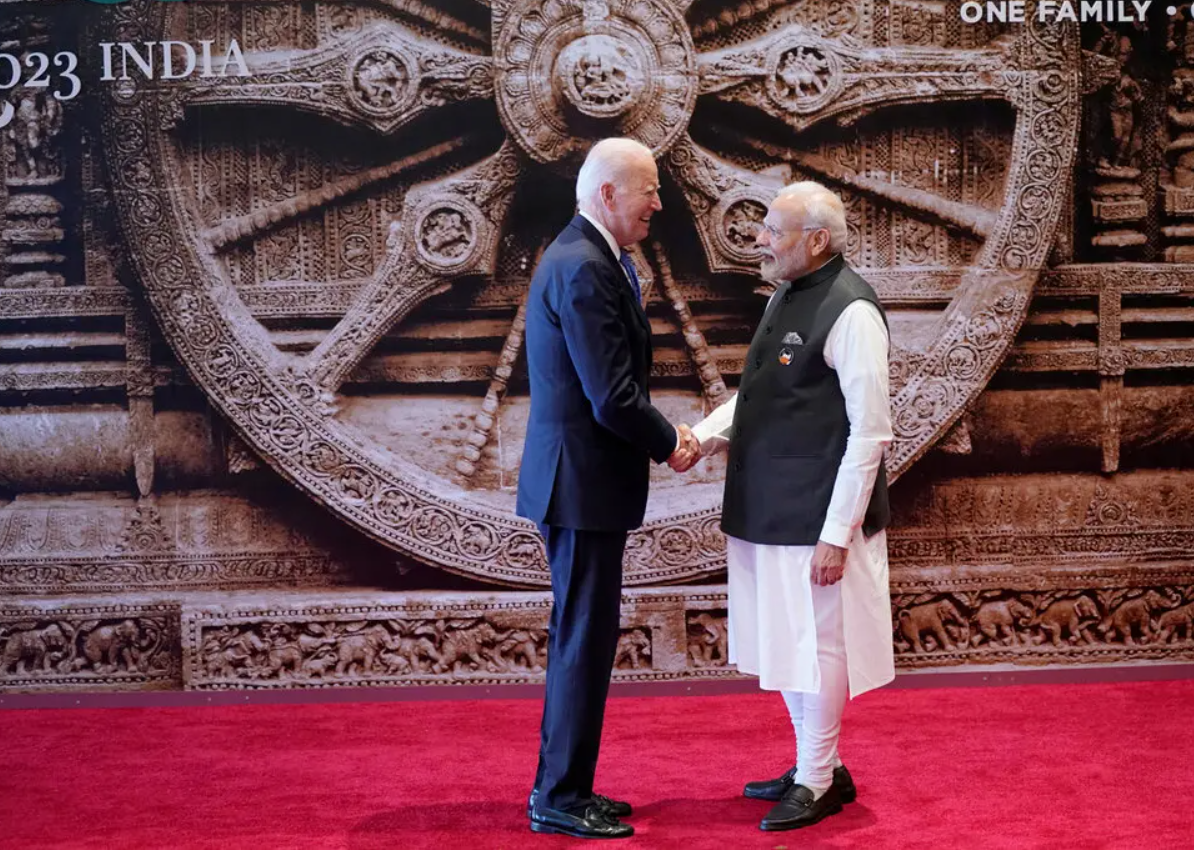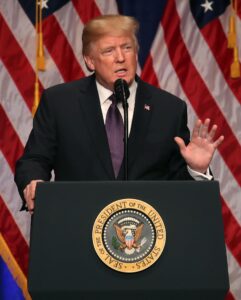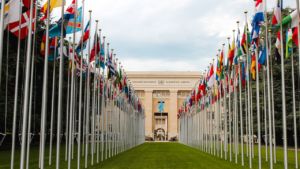G20 Summit Takes Cautious Stance on Ukraine Conflict, Advocates for Peace
The G20 summit concluded with a measured declaration that refrained from explicitly condemning Russia for its role in the Ukraine conflict. Instead, the international gathering emphasized the paramount importance of achieving peace and resolution in the ongoing crisis. This diplomatic approach reflects the complexities of the situation and the summit’s commitment to fostering dialogue and negotiations for a peaceful resolution to the conflict. Hosted in New Delhi, India, the summit featured prominent leaders, including U.S. President Joe Biden, discussing various global issues.
G20 summit 2023:
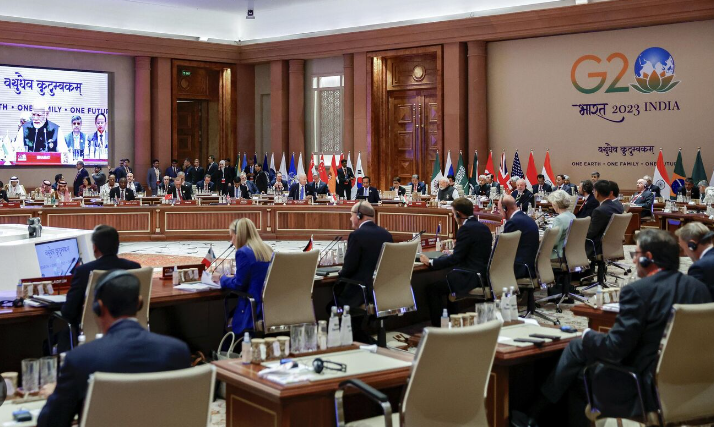
Indian Prime Minister Narendra Modi announced the adoption of the Leaders’ Declaration, emphasizing the consensus reached among the participating nations. This consensus was a surprising development, considering the deep divisions within the G20 regarding the Ukraine conflict. Western nations had initially pushed for a strong condemnation of Russia in the declaration, while others advocated for a focus on broader economic concerns.
The declaration’s language called on all states to uphold the principles of international law, including territorial integrity and sovereignty, international humanitarian law, and the multilateral system aimed at preserving peace and stability. Additionally, the statement welcomed constructive initiatives supporting a comprehensive, just, and lasting peace in Ukraine, underscoring the inadmissibility of the use or threat of nuclear weapons.
Despite the declaration’s content, Ukraine’s foreign ministry expressed disappointment, stating that a Ukrainian presence at the summit would have provided a deeper understanding of the situation. However, German Chancellor Olaf Scholz praised the declaration for taking a clear stance on Russia’s invasion of Ukraine, emphasizing that the territorial integrity of nations should not be questioned through violence. British Prime Minister Rishi Sunak also noted the declaration’s strong language regarding Russia’s illegal war in Ukraine.
India’s Foreign Minister Subrahmanyam Jaishankar highlighted that differing viewpoints and interests were in play during the summit but ultimately led to common ground on all issues. Meanwhile, China, Russia’s primary ally, expressed support for the summit’s outcome, contributing to the spirit of compromise among the participating nations.
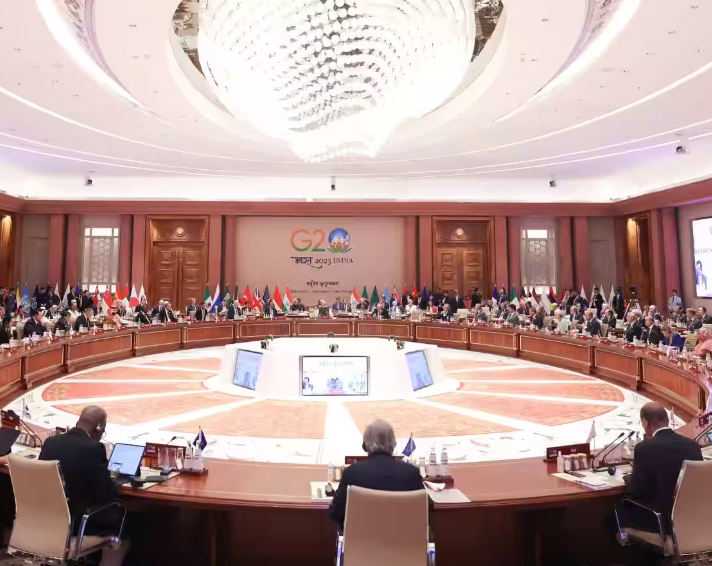
In addition to diplomatic discussions, the G20 summit showcased the significant security measures undertaken to ensure its smooth proceedings, with leaders transported through carefully monitored streets to a new, state-of-the-art convention center called Bharat Mandapam. The summit’s significance extended to discussions about global trust deficits, and it marked the inclusion of the African Union as a permanent member, making the bloc more representative.
Although the summit grappled with issues related to the Ukraine conflict and global dynamics, it was notable for the absence of key leaders, including China’s President Xi Jinping and Russia’s Vladimir Putin. Despite these absences, the summit proceeded with constructive discussions among influential leaders on matters of global importance.
BRICS includes Brazil, Russia, India, China and South Africa, and has agreed to add another six members — Saudi Arabia, Iran, Ethiopia, Egypt, Argentina and the United Arab Emirates – accelerating its push to reshuffle a world order it sees as outdated. (USnewsSphere)


